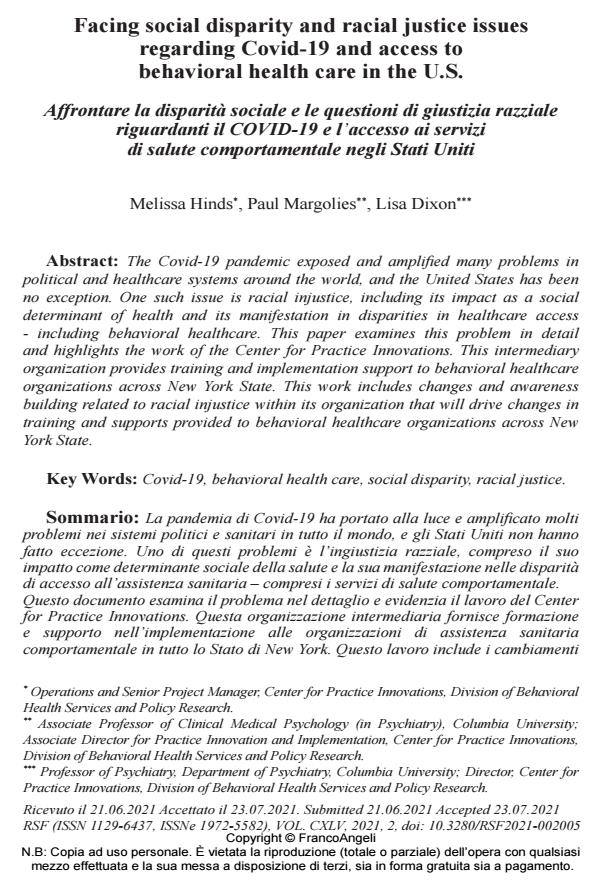Facing social disparity and racial justice issues regarding Covid-19 and access to behavioral health care in the U.S.
Journal title RIVISTA SPERIMENTALE DI FRENIATRIA
Author/s Melissa Hinds, Paul Margolies, Lisa Dixon
Publishing Year 2021 Issue 2021/2
Language English Pages 12 P. 53-64 File size 162 KB
DOI 10.3280/RSF2021-002005
DOI is like a bar code for intellectual property: to have more infomation
click here
Below, you can see the article first page
If you want to buy this article in PDF format, you can do it, following the instructions to buy download credits

FrancoAngeli is member of Publishers International Linking Association, Inc (PILA), a not-for-profit association which run the CrossRef service enabling links to and from online scholarly content.
The Covid-19 pandemic exposed and amplified many problems in political and healthcare systems around the world, and the United States has been no exception. One such issue is racial injustice, including its impact as a social determinant of health and its manifestation in disparities in healthcare access - including behavioral healthcare. This paper examines this problem in detail and highlights the work of the Center for Practice Innovations. This intermediary organization provides training and implementation support to behavioral healthcare organizations across New York State. This work includes changes and awareness building related to racial injustice within its organization that will drive changes in training and supports provided to behavioral healthcare organizations across New York State.
Keywords: Covid-19, behavioral health care, social disparity, racial justice.
Melissa Hinds, Paul Margolies, Lisa Dixon, Facing social disparity and racial justice issues regarding Covid-19 and access to behavioral health care in the U.S. in "RIVISTA SPERIMENTALE DI FRENIATRIA" 2/2021, pp 53-64, DOI: 10.3280/RSF2021-002005